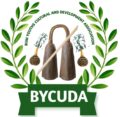Ngunabum Area Development Association (NADA).
The Ngunabum Area Development Association (NADA) is a community-based organization dedicated to driving positive change and sustainable development in the Ngunabum area. Established in early 2008, NADA operates with a vision of creating a thriving and inclusive community where all residents have access to essential services, economic opportunities, and a high quality of life.
NADA’s mission is to address the diverse needs of the Ngunabum community through strategic interventions and collaborative initiatives. The association focuses on key areas such as education, healthcare, infrastructure development, agriculture, and environmental conservation.
Through partnerships with local authorities, NGOs, and other stakeholders, NADA implements various projects and programs aimed at improving the well-being of residents. These initiatives include the establishment of schools, healthcare centers, and community facilities, as well as the promotion of sustainable agriculture practices and environmental stewardship.
Furthermore, NADA prioritizes community engagement and participation, ensuring that residents have a voice in decision-making processes and actively contribute to the development agenda. By fostering a culture of collaboration and empowerment, NADA aims to create lasting positive impact and uplift the socio-economic status of the Ngunabum community, ultimately building a brighter future for generations to come.
Realised Projects
1. The construction of the Ngunabum community hall.
2. Construction of two classrooms and an office in GNS Ngunabum.
3. Donated 10 benches to GSS Konene
4. The bridge linking councillor’s zone and school zone over river Luka.
5. The bridge linking quarter head zone and Fulani one.
6. The bridge linking school zone and Fulani two.
7. The bridge linking school zone and Bastos zone.
8. The bridge linking councillor’s zone and mission zone.
Envisage Projects.
1. Lobbying to construct these bridges permanently using cement,rots and concrete.
2. To see that Ngunabum enjoy portable water.
3. Promote agriculture by assisting farmers with farm inputs.
4. Promote education through scholarship.
5. Health promotion and disease prevention through capacity building in youths
